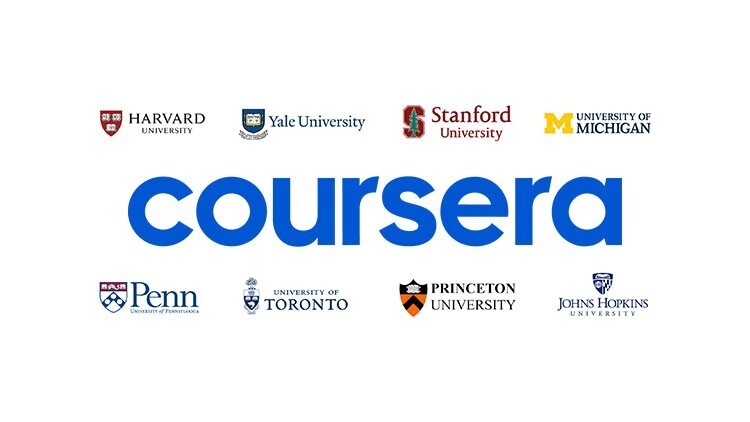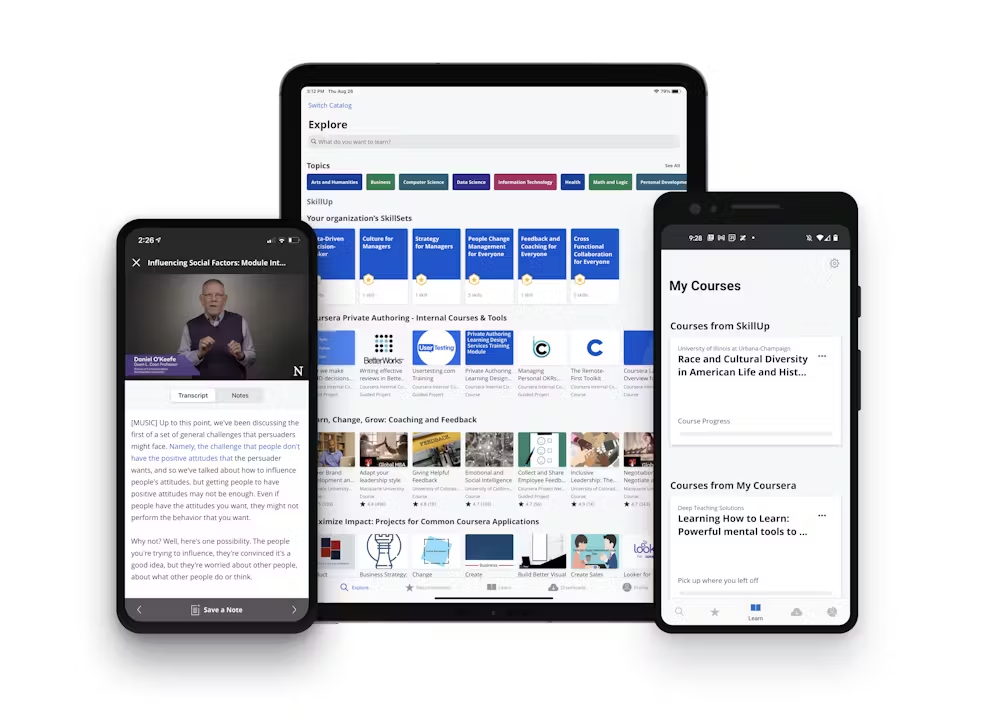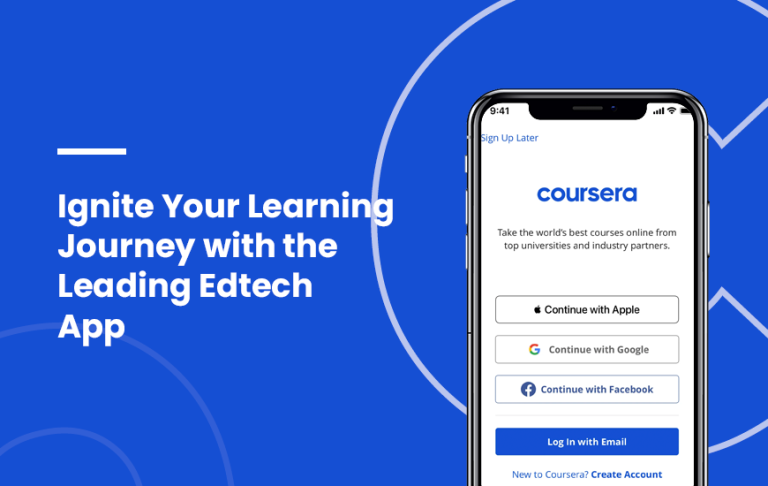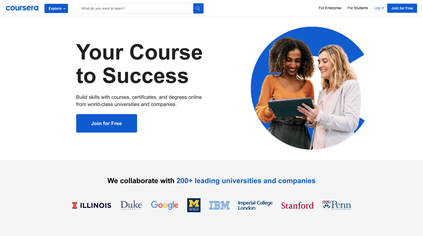Introduction
In an era where digital transformation is rapidly reshaping various aspects of our lives, education is no exception. Among the many platforms driving this transformation, Coursera stands out as a leader in online learning. Founded in 2012 by Stanford University professors Daphne Koller and Andrew Ng, Coursera has grown into a global educational powerhouse, democratizing access to high-quality education. This comprehensive blog post will explore the history of Coursera, its offerings, unique selling points, and the profound impact it has had on the world of education.
Coursera’s journey began with a simple yet ambitious goal: to provide universal access to the world’s best education. The idea was born out of the increasing demand for higher education and the limitations of traditional learning models. Daphne Koller and Andrew Ng envisioned a platform that could bring top-tier university courses to anyone, anywhere in the world, free of charge.
The first set of courses, launched in April 2012, quickly attracted hundreds of thousands of students. The overwhelming response validated the founders’ vision and highlighted a significant unmet need for accessible, flexible learning opportunities.
Mission and Vision
Coursera’s mission is to provide “universal access to the world’s best education.” This mission is driven by a vision of a world where anyone, regardless of their geographic or economic circumstances, can access high-quality education and advance their career. Coursera aims to bridge the gap between learning and opportunity, empowering individuals to achieve their personal and professional goals.
Offerings
Coursera offers a diverse range of educational opportunities tailored to various learning needs and career aspirations. Its offerings can be broadly categorized into the following:
Courses
- Single Courses: Coursera’s catalog includes thousands of courses across various disciplines such as business, technology, health, and social sciences. These courses are designed by top universities and industry leaders, providing learners with up-to-date, practical knowledge.
- Guided Projects: These are short, hands-on projects that allow learners to gain practical experience in a specific skill, such as data analysis, coding, or digital marketing.
Specializations Specializations are series of related courses designed to help learners deepen their expertise in a particular subject. They typically include a hands-on project that enables learners to apply what they’ve learned in a practical context.
Professional Certificates These are industry-recognized credentials designed to help learners gain job-relevant skills and advance their careers. Professional Certificates often include projects and assessments that demonstrate proficiency in the subject matter.
Degrees Coursera partners with leading universities to offer fully accredited bachelor’s and master’s degree programs online. These programs provide the same rigorous curriculum and faculty expertise as their on-campus counterparts, but with the flexibility to learn from anywhere.
MasterTrack™ Certificates These are modules from master’s degree programs that have been converted into online courses. Learners who complete a MasterTrack™ Certificate can often apply their credits towards a full master’s degree.
Coursera for Business This offering is designed for enterprises looking to upskill their workforce. It includes curated learning paths, analytics, and integration with existing learning management systems.
Unique Selling Points
Coursera’s success can be attributed to several unique selling points that set it apart from other online learning platforms:
High-Quality Content Coursera partners with top-tier universities and industry leaders to create its courses. This ensures that the content is both academically rigorous and practically relevant. Institutions like Stanford, Yale, the University of Michigan, and companies like Google, IBM, and Facebook contribute to Coursera’s extensive course catalog.
Accessibility and Flexibility One of Coursera’s core principles is making education accessible to everyone. Many courses are available for free, and the platform offers financial aid to learners who need it. Additionally, Coursera’s online format allows learners to study at their own pace and on their own schedule, making it ideal for working professionals and those with other commitments.
Interactive and Engaging Learning Experience Coursera leverages advanced technologies to create interactive and engaging learning experiences. Features like video lectures, quizzes, peer-reviewed assignments, and discussion forums enhance the learning process and help learners stay motivated.
Career Advancement Coursera focuses on delivering job-relevant skills and credentials that can directly impact learners’ careers. Professional Certificates, Specializations, and degrees are designed with input from industry leaders, ensuring that learners acquire skills that are in demand in the job market.
Global Reach Coursera’s global reach is another key advantage. The platform has over 77 million learners from around the world, creating a diverse and vibrant learning community. This global network allows learners to gain different perspectives and collaborate with peers from various cultural and professional backgrounds.
Personalized Learning Paths Coursera offers personalized learning recommendations based on learners’ goals, previous courses, and areas of interest. This helps learners navigate the vast catalog and find courses that align with their career aspirations and personal interests.
Impact on Education
Coursera has had a profound impact on the world of education in several ways:
Democratization of Education By providing access to high-quality courses from top universities and industry leaders, Coursera has democratized education. Learners from all walks of life, including those in underserved and remote areas, can now access world-class education that was previously out of reach.
Lifelong Learning Coursera has popularized the concept of lifelong learning. In today’s fast-paced world, continuous learning is essential for career growth and personal development. Coursera’s flexible and diverse offerings enable learners to continuously acquire new skills and knowledge throughout their lives.
Bridging the Skills Gap The platform plays a crucial role in addressing the skills gap in various industries. By offering courses and certificates in high-demand fields like data science, artificial intelligence, and cybersecurity, Coursera helps learners gain the skills needed to thrive in the modern job market.
Supporting Career Transitions Coursera has empowered countless individuals to transition to new careers. For example, a learner with a background in humanities can take a series of data science courses and earn a Professional Certificate, thereby qualifying for roles in the tech industry.
Enhancing Traditional Education Many universities use Coursera to enhance their traditional education offerings. By integrating online courses into their curricula, universities can provide students with additional learning resources and flexibility. This blended learning approach has become especially important in the wake of the COVID-19 pandemic.
Corporate Training and Development Coursera for Business has transformed corporate training by providing organizations with scalable, high-quality learning solutions. Companies can now offer their employees access to a vast library of courses, helping them upskill and stay competitive in the rapidly changing business landscape.
Success Stories
Coursera’s impact is best illustrated through the success stories of its learners. Here are a few examples:
From Homemaker to Data Scientist Maria, a homemaker from Brazil, wanted to re-enter the workforce after raising her children. She started taking data science courses on Coursera and earned a Professional Certificate. Today, she works as a data scientist for a major tech company, a role she never thought possible before discovering Coursera.
Upskilling for Career Growth John, an IT professional from India, felt stuck in his career and wanted to move into a more advanced role. He enrolled in a MasterTrack™ Certificate in Data Science and gained the skills and credentials needed to secure a promotion. Coursera’s flexible learning model allowed him to study while working full-time.
Breaking Barriers Amina, a young woman from a rural area in Kenya, dreamed of becoming an engineer but had limited access to quality education. Through Coursera, she completed courses in engineering and computer science. With her newfound knowledge, she earned a scholarship to a top university and is now pursuing her dream of becoming an engineer.
Corporate Learning A leading multinational company used Coursera for Business to upskill its workforce in digital marketing. The tailored learning paths and practical projects helped employees gain new skills, leading to a significant improvement in the company’s marketing strategies and overall performance.
Challenges and Criticisms
While Coursera has achieved tremendous success, it has also faced challenges and criticisms:
Completion Rates One of the common criticisms of online learning platforms, including Coursera, is the low completion rate of courses. Many learners sign up for courses but do not complete them, often due to a lack of motivation or time management skills.
Accessibility Issues Despite its mission to make education accessible to all, there are still barriers for some learners. For instance, access to reliable internet and suitable devices can be a challenge in certain regions. Additionally, language barriers may prevent non-English speakers from fully benefiting from the platform.
Quality Control With a vast catalog of courses, maintaining consistent quality can be challenging. While most courses are created by reputable institutions, some learners have reported variations in the quality of content and instruction.
Cost While many courses are available for free, earning a certificate or degree often requires payment. For some learners, especially those in developing countries, the cost can be prohibitive.
Looking ahead, Coursera has several exciting plans and initiatives to further its mission:
Expansion of Degree Programs Coursera aims to expand its offering of accredited degree programs in collaboration with leading universities. This will provide more learners with the opportunity to earn recognized qualifications online.
Focus on Emerging Technologies With the rapid advancement of technology, Coursera is committed to offering courses in cutting-edge fields such as artificial intelligence, blockchain, and quantum computing. This will help learners stay ahead of the curve and meet the demands of the evolving job market.
Enhanced Learning Experience Coursera plans to continue investing in technologies that enhance the learning experience. This includes leveraging artificial intelligence to provide personalized learning recommendations and developing interactive tools that make learning more engaging.
Global Expansion Coursera is focused on increasing its global reach by offering more courses in different languages and partnering with universities and organizations worldwide. This will help address the diverse needs of learners across the globe.
Strengthening Corporate Partnerships Coursera for Business will continue to play a crucial role in the platform’s growth. By expanding its corporate partnerships and offering tailored learning solutions, Coursera aims to help more organizations upskill their workforce and drive business success.
Conclusion
Coursera has revolutionized the world of education by making high-quality learning accessible, flexible, and relevant to today’s job market. Its mission to provide universal access to the world’s best education has empowered millions of learners to achieve their goals and transform their lives. As Coursera continues to innovate and expand, its impact on global education is set to grow even further, shaping the future of learning in the digital age.
Whether you are a student, a professional, or simply someone with a thirst for knowledge, Coursera offers a wealth of opportunities to learn, grow, and succeed. Explore the vast catalog of courses and discover how Coursera can help you achieve your educational and career aspirations.






